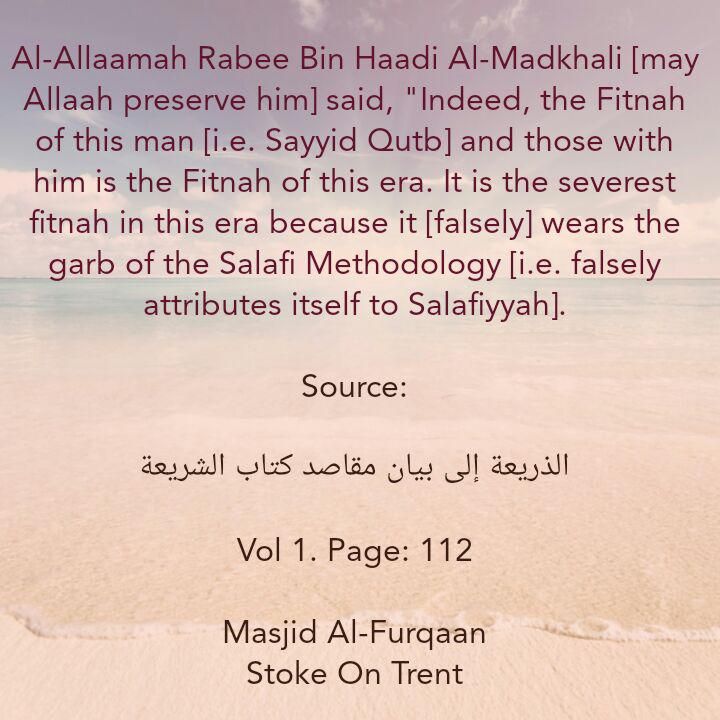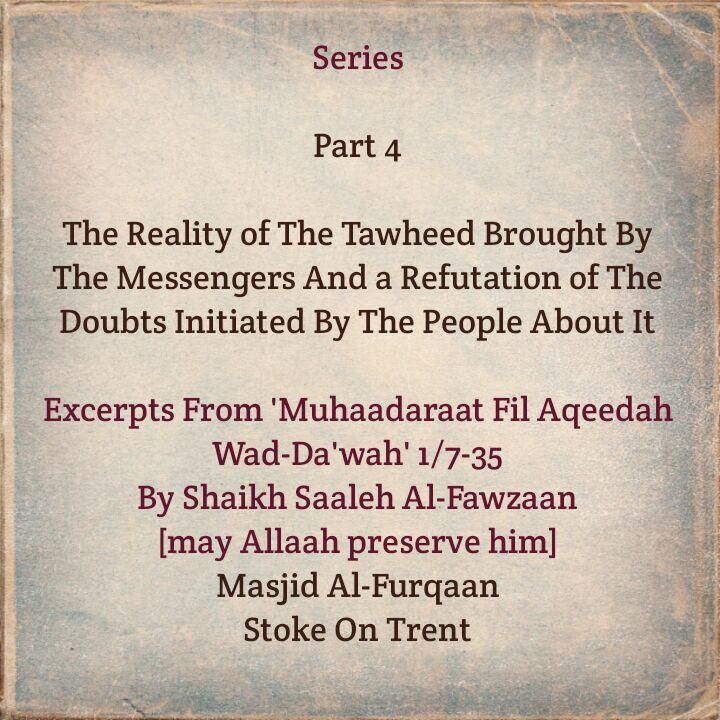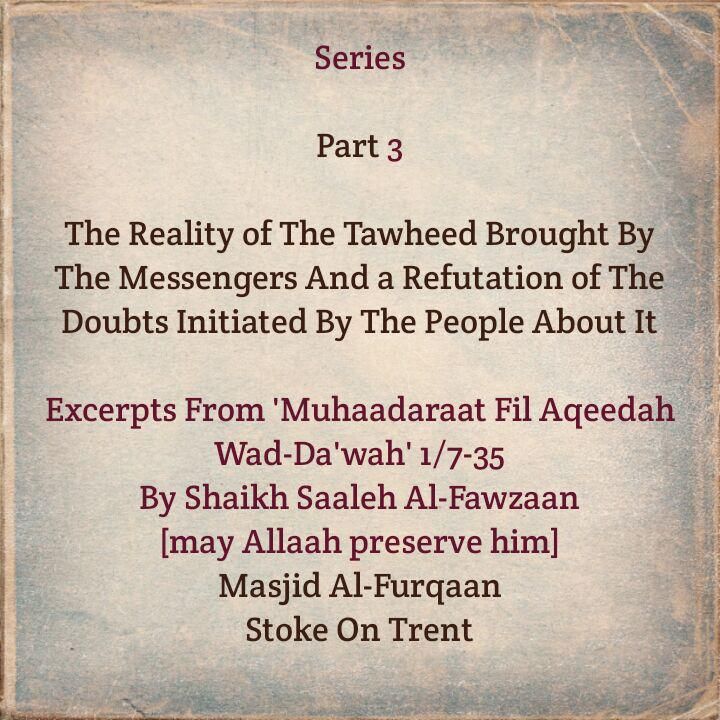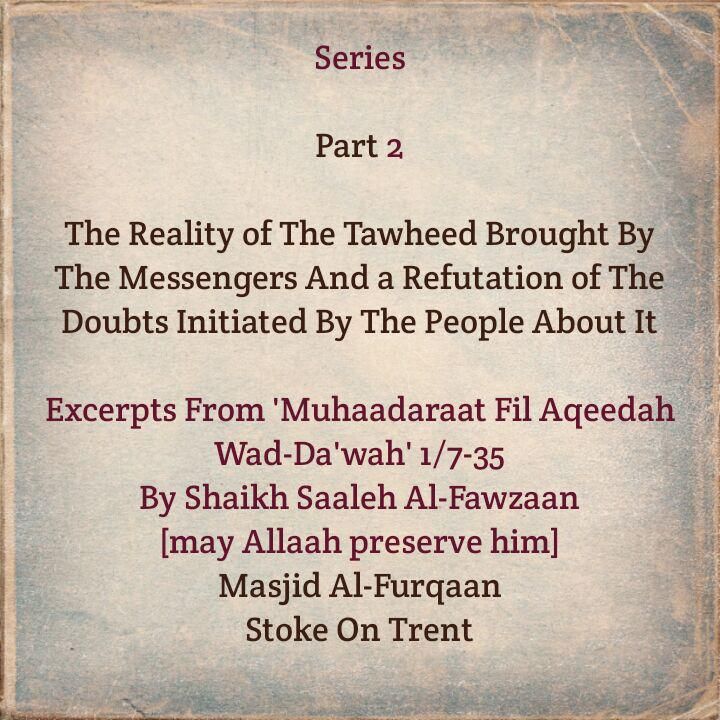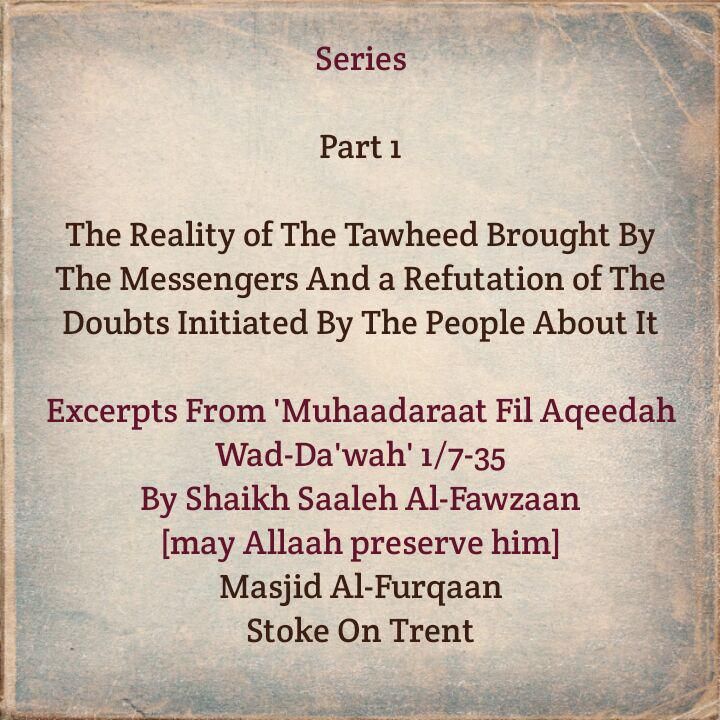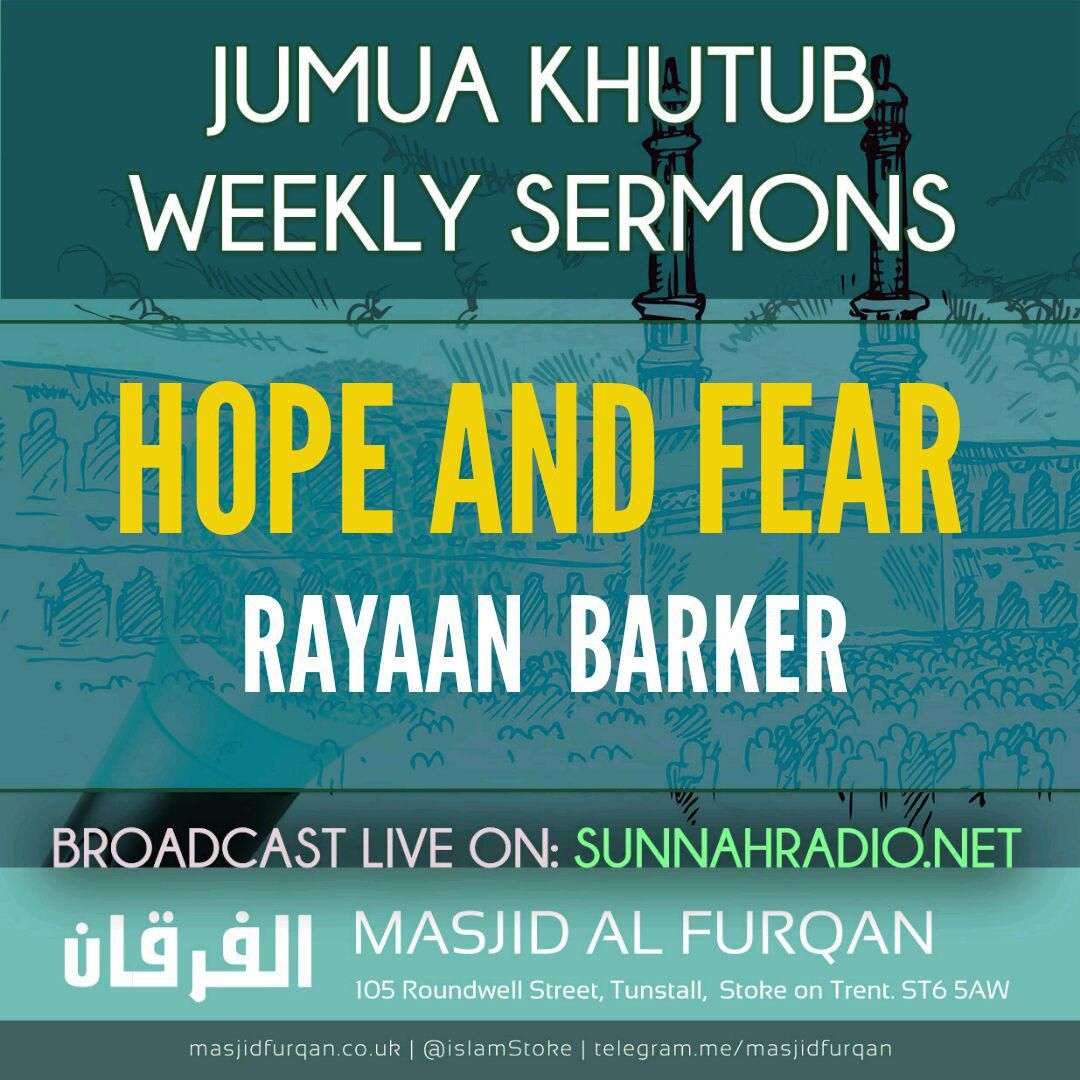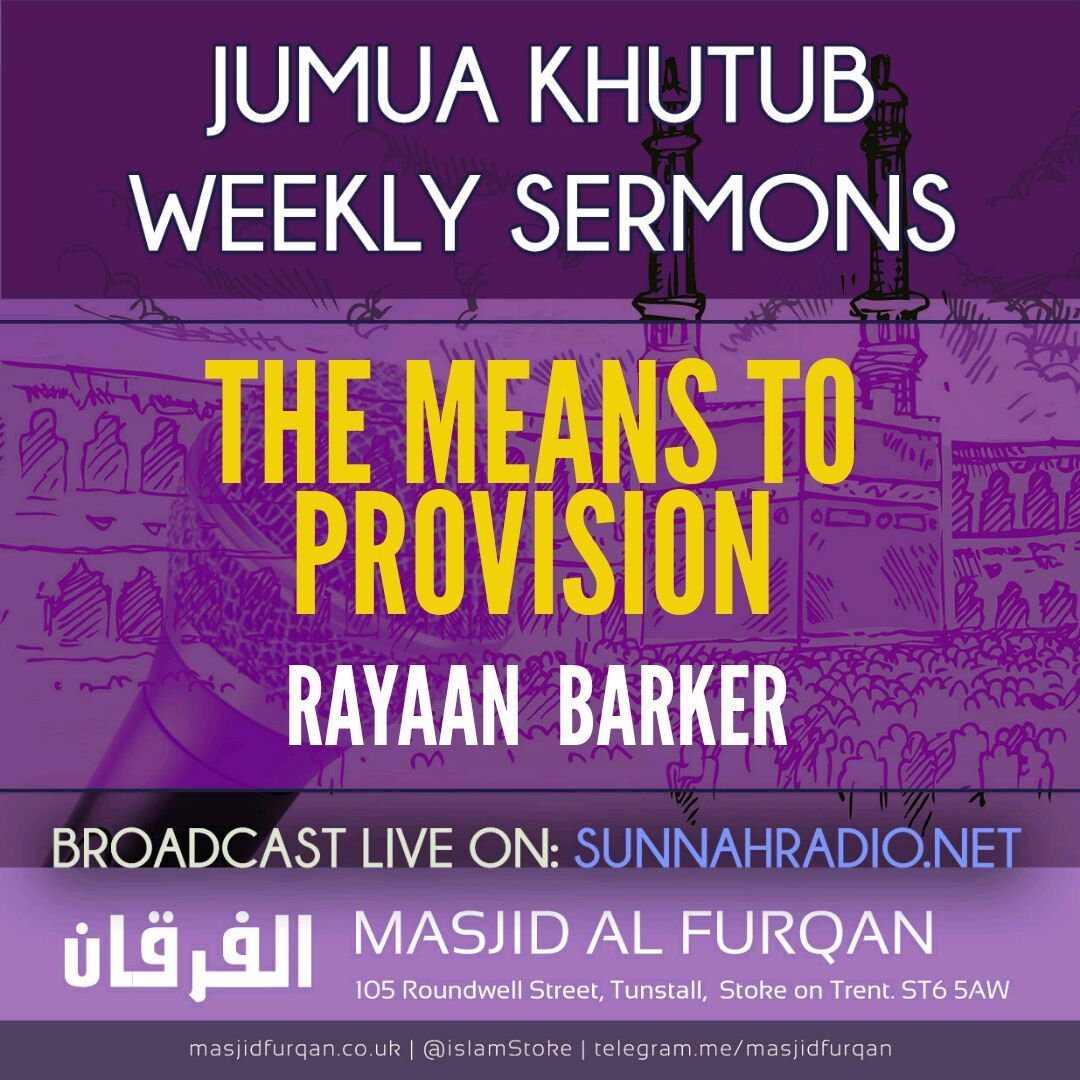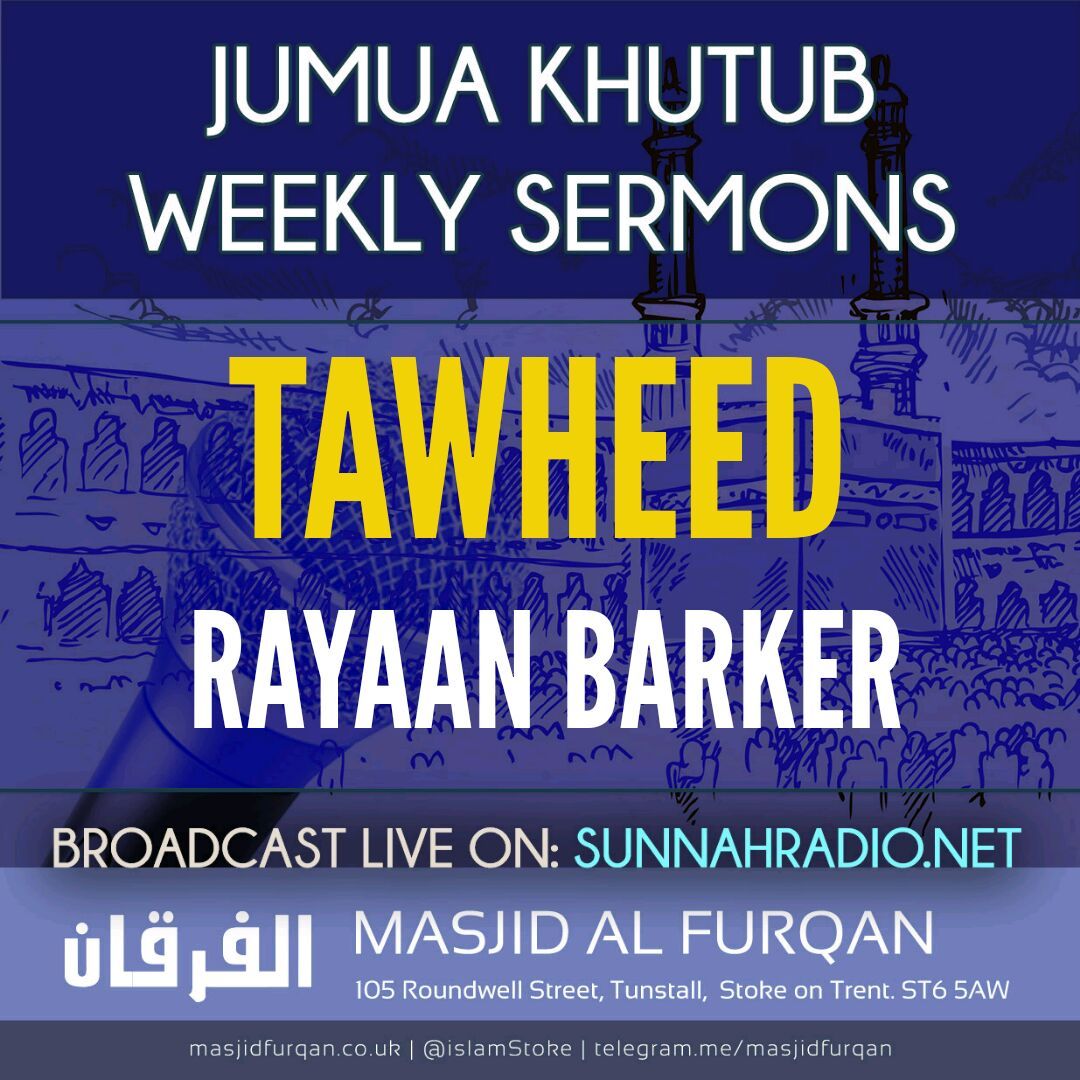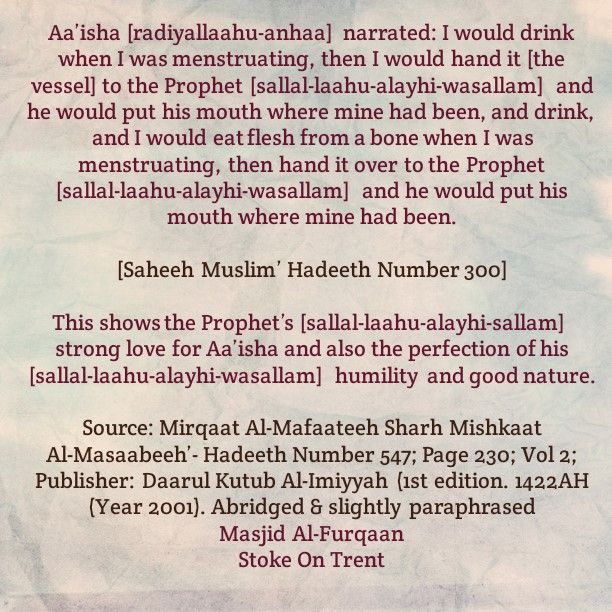In The Name of Allaah, The Most Merciful, The Bestower of Mercy
Shaikh Saaleh Al-Fawzaan [may Allaah preserve him] said:
Ibaadah [worship] is a right due to Allaah which His slaves must fulfil, just as the Prophet [sallal-laahu-alayhi-wasallam] said to Mu’aadh Bin Jabal [radiyallaahu-anhu]: “O Mu’adh, do you know what is the right of Allah upon His servants?” I said, “Allah and His Messenger know best.” The Prophet said, “To worship Him alone and to associate none in worship with Him. And do you know what is their right upon Him?” I said, “Allah and His Messenger know best.” The Prophet said, “Not to punish them if they do so.” [Bukhari]
The is the first and foremost Right [or obligation to fulfil] without exception. Nothing else precedes it nor is precedence given to the rights of anyone [or the obligations owed to anyone] over it. Allaah [The Most High] said:
وَقَضَىٰ رَبُّكَ أَلَّا تَعۡبُدُوٓاْ إِلَّآ إِيَّاهُ وَبِٱلۡوَٲلِدَيۡنِ إِحۡسَـٰنًاۚ
And your Lord has decreed that you worship none but Him. And that you be dutiful to your parents. [Surah Al-Israa’ Aayah 23]
قُلۡ تَعَالَوۡاْ أَتۡلُ مَا حَرَّمَ رَبُّڪُمۡ عَلَيۡڪُمۡۖ أَلَّا تُشۡرِكُواْ بِهِۦ شَيۡـًٔ۬اۖ وَبِٱلۡوَٲلِدَيۡنِ إِحۡسَـٰنً۬اۖ
Say (O Muhammad ): “Come, I will recite what your Lord has prohibited you from: Join not anything in worship with Him; be good and dutiful to your parents. [Sural Al-An’aam’ Aayah 151] [End of quote] [Ref 1]
And regarding the statement of the Prophet [sallal-laahu-alayhi-wasallam]: What is the right of Allaah upon His slaves? This means that which [i.e. the obligations] Allaah has obligated on them.
And regarding the statement of the Prophet [sallal-laahu-alayhi-wasallam]: What is the right of the slaves upon Allaah? Meaning: That which Allaah has obligated on Himself in dealing with them. The slaves cannot obligate anything, rather Allaah obligated it upon Himself – a blessing from Allaah bestowed upon His slaves. Allaah [The Most High] said:
كَتَبَ رَبُّكُمۡ عَلَىٰ نَفۡسِهِ ٱلرَّحۡمَةَۖ أَنَّهُ ۥ مَنۡ عَمِلَ مِنكُمۡ سُوٓءَۢا بِجَهَـٰلَةٍ۬ ثُمَّ تَابَ مِنۢ بَعۡدِهِۦ وَأَصۡلَحَ فَأَنَّهُ ۥ غَفُورٌ۬ رَّحِيمٌ۬
your Lord has written Mercy for Himself, so that, if any of you does evil in ignorance, and thereafter repents and does righteous good deeds (by obeying Allah), then surely, He is Oft-Forgiving, Most Merciful. [Surah Al-An’aam’ Aayah 54]
So, Allaah [Glorified be He and free is He from all imperfections] obligated on Himself that He will show mercy to the one who does evil in ignorance – meaning: out of foolishness and lack of good behaviour, but then he repents and does righteous deeds. And the meaning of [كتب in this Aayah] is [ أوجب – obligated]. [Ref 2]
Ref 1: Muhaaaraat Fil Aqeedah Wad-Da’wah’ vol 1′ pg 8
Ref 2: Al-Qawlul Mufeed Alaa Kitaabit Tawheed’ by Shaikh Uthaymeen [rahimahullaah]’ 1/46
